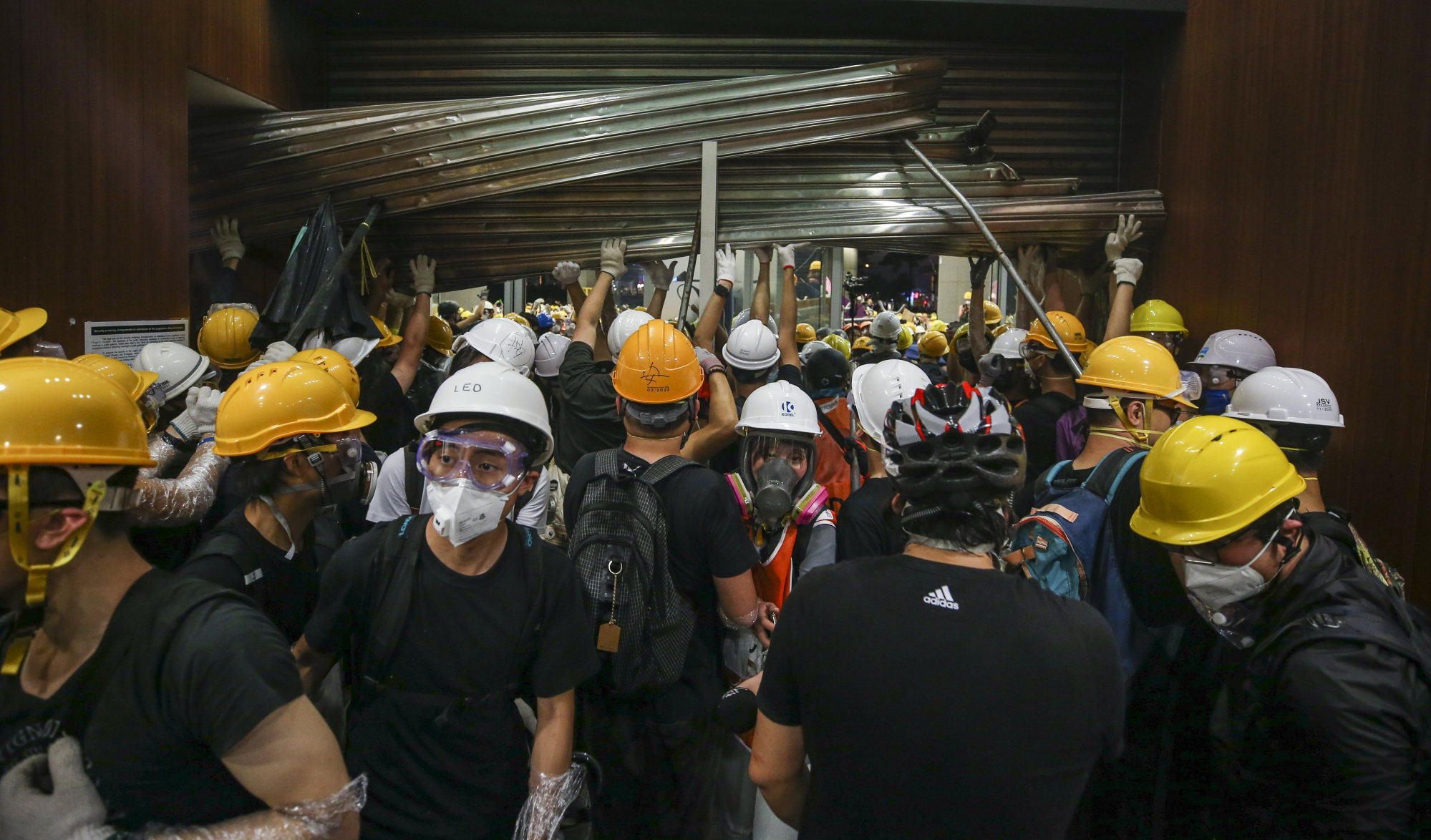
Apple Daily staff covered 2019 Hong Kong protests with ‘intention’ of rallying support for movement after Legco riot, court hears
- Ex-associate publisher Chan Pui-man says media tycoon Jimmy Lai was worried Legco storming might cause movement to lose support among residents
- ‘Our work in the next few days will be to enlarge and proliferate these sentiments … become the consensus among residents,’ Lai told Chan in WhatsApp messages
Chan Pui-man, a former associate publisher at the now-closed tabloid, also told a court on Wednesday that Lai asked to have his views published about a US trip she believed was aimed at lobbying overseas support to exert pressure on the Hong Kong government.
She was testifying against Lai as an accomplice witness on the 25th day of the national security trial. She earlier pleaded guilty to conspiring to collude with foreign forces.
Lai is on trial at West Kowloon Court on charges of sedition and conspiracy to collude with foreign forces and inciting public hatred in the wake of the 2019 protests. He has pleaded not guilty.
Prosecutors on Wednesday submitted records of Lai’s WhatsApp exchanges with the paper’s senior management after protesters broke into the Legislative Council building on July 1, 2019.

Hundreds of people forced their way into the building after a massive march against a now-withdrawn extradition bill, which would have allowed authorities to send individuals to mainland China for trial.
“This was big news … My understanding of [Lai’s] instructions to me was that he was worried the storming of Legco was controversial, which might cause the movement to lose support from citizens,” Chan told the court.
“We covered the incident even before Lai said anything. But after he said so, it felt like we had to cover it with intent. We had to cover it in a way that residents would continue to support this movement.”
Mr Justice Alex Lee Wan-tang asked: “Do you mean that Mr Lai had a purpose in mind, and wanted the news coverage to be conducted in a certain perspective so as to achieve his purpose?”
“Yes,” Chan replied.
WhatsApp messages presented in court showed Lai telling colleagues that scenes of young people charging into Legco “weighed heavily” on his heart and it was a relief that residents were “more or less understanding” of their actions.
‘Lai asked top Apple Daily executive to encourage Hongkongers to protest 2019 bill’
“Our work in the next few days will be to enlarge and proliferate these sentiments, have it pervade and become the consensus among residents,” Lai told Chan via WhatsApp.
Chan texted Lai that the paper had already carried a lot of coverage on the “thoughts of the young people” involved in the storming, and pledged that they would “do more”.
The court heard that Apple Daily later ran stories including an interview with a young father, headlined “‘Martyr’ who stayed behind in Legco”, and a report that said protesters left banknotes in a fridge after they took drinks from the building.
Prosecutors also highlighted Apple Daily’s coverage of Lai’s trips to Washington in 2019 as evidence of the tycoon’s influence on the paper.
One in July concerned his meeting with then US secretary of state Mike Pompeo under the tag, “Evil law messing up Hong Kong”. Another in October had the title, “Senators concerned about escalation of violence in protest. Jimmy Lai hopes the US will be more vocal so that young people know they are not alone under police brutality”.
Two days after the latter was published, Lai texted Chan, asking her to come up with 10 questions about the trip so he could have the answers published in his column.
Chan told the court that, at the time, Lai believed pressure exerted by foreign countries on the Hong Kong government would help achieve protesters’ goals, which included launching an independent investigation into alleged police brutality.
Madam Justice Esther Toh Lye-ping asked: “Did [Lai] ever tell you what type of pressure that was?”
Chan said her former boss did not tell her directly, but she believed it was a reference to legislation of the United States’ Hong Kong Human Rights and Democracy Act which put the special treatment the city enjoyed under tighter scrutiny.
The court also spent more than an hour in total over the past few days dealing with translation inconsistencies in some phrases in evidence submitted by the prosecution.
Justice Lee demanded Ivan Cheung Cheuk-kan, assistant director of public prosecutions, take note of the problem to save court time.
“You have had almost two years to prepare … You should have prepared a glossary that they [counsel and interpreter] can rely on, especially if some phrases may have some bearing in the case,” he said.
The hearing continues on Thursday.

